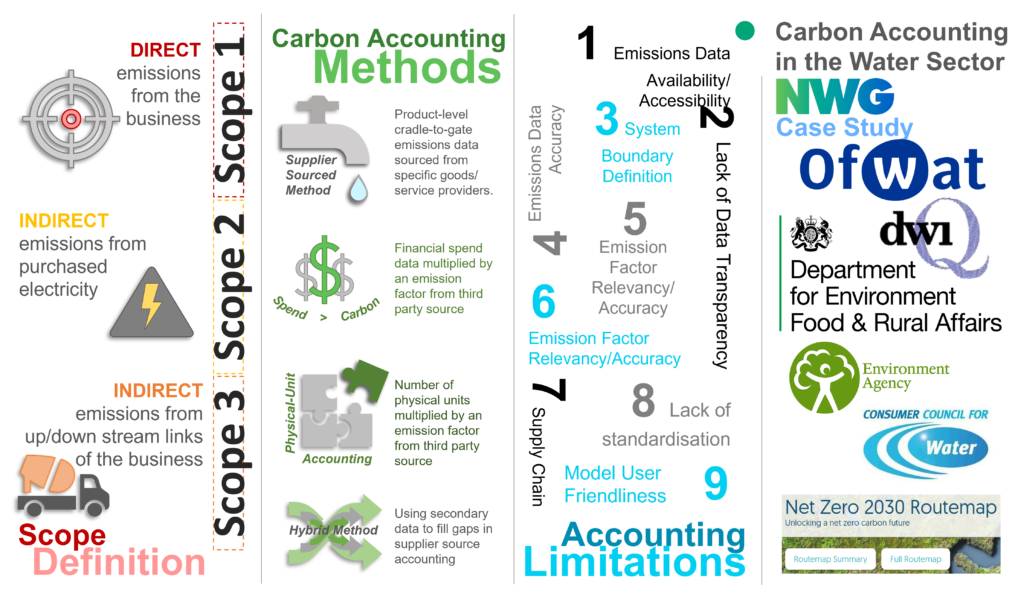Meet Anna Christy
Email: [email protected]
Academic and Industrial affiliations: Newcastle University, Northumbrian Water
Title of research project: Minimising whole life carbon emissions in a multi-site utility

The overarching aim of the project is to develop a methodology for measuring and reporting all GHG emissions from operations, capital projects and the supply chain which is (or can be) embedded within Northumbrian Water (NWL)’s corporate systems/processes. The project considers and maps out the complexity of water infrastructure, including investment cycles and resilient infrastructure systems, using whole systems thinking and therefore covers a breadth of academic topics, including civil engineering, process engineering and environmental economics.
For operational emissions, the project aims to challenge the current reporting process to ensure that emissions factors/calculations represent best practice and satisfy or indeed advance the relevant national and international reporting protocols. Notably, the current methodology for calculating and reporting process emissions is relatively simple and only applicable to the UK water sector. Additionally, some Scope 3 operational emissions, such as those from chemical usage do not allow optimisation of the supply chain and therefore a few performance improvements are under delivered.
For embodied emissions, the company perceives a risk to its capital programme and its resilient infrastructures and a transparent and robust GHG emissions reporting needs to be delivered. It is anticipated that during Amp8 (2025-2030), NWL will be required to demonstrate GHG emissions within its project selection criteria for major schemes. The company will also need to be able to demonstrate estimated emissions at design stage vs delivered projects and account for the variance. NWL wishes to be able to demonstrate that its embodied emissions are calculated from data collected directly from our supply chain rather than national systems or using cost ratios.
In its current business plan, NWL has made the commitment that 60% of its expenditure will be with local suppliers. These suppliers are often small and therefore not equipped to report on emissions relating to their NWL contracts. Hence this project is also looking to develop a methodology to overcome this challenge.

